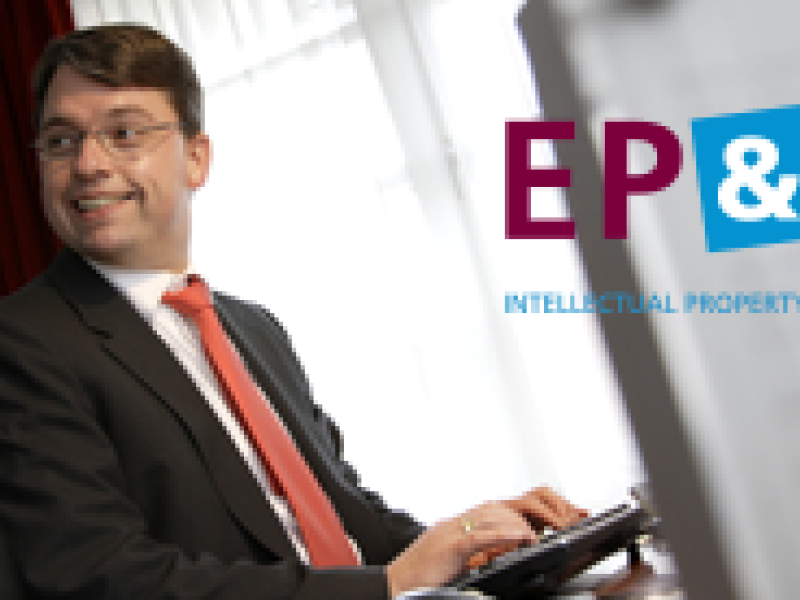Life sciences is a sector overflowing with inventors. But creativity and innovation don’t always bring commercial success. Monetizing your invention depends on securing your intellectual property rights. Which isn’t as easy as you might think. EP&C - the Rijswijk-based patent agency and partner of the Dutch Life Sciences Conference – advises life sciences entrepreneurs on protecting their most valuable assets: their intellectual property.
Lawyer to the stars of science
Life sciences is the specialist field of Robbert-Jan de Lang, patent attorney at EP&C and Chair of the Society of Patent Attorneys. There’s nothing he likes better than sitting down with entrepreneurs to explore ways of using intellectual property (IP) as the feedstock for business growth.
‘Life sciences is very IP-centric,’ says De Lang. ‘It’s a sector fuelled by innovation and lateral thinking. Nevertheless, many life science businesses, especially start-ups, constantly put off adopting a structured approach to IP. And that translates into missed opportunities.’
That’s one of the main reasons why EP&C decided to partner the Dutch Life Sciences Conference.
‘We want to share and disseminate our knowledge of IP and patent law. Show people what we’re all about. We are lawyers to the scientific community. And we subscribe to the same rules on confidentiality. But the key thing is that we help entrepreneurs to protect, increase and generate earnings from their IP.’
Early start
De Lang makes no bones about it: securing a patent is a lengthy and complex process. Especially if you’re an inventor with international ambitions. But the fact of the matter is that if you’re in the business of innovation, you can’t begin work on protecting of your IP too soon.
‘Any entrepreneur with an original idea should go straight to their patent agency. Even if the idea is barely more than a sketch on a napkin. I typically get to see the start-ups I work for about four times a year. We sit down together, have a coffee and chat about plans. Then I go away and do some research. Is my client really the first person to come up with the concept they’ve just explained to me? Are there others working along similar lines? Should we prepare a patent application? Together, the client and I work out a patent strategy, with two aims. First to make sure that we apply for any patents that the client is going to need. And, second, to maintain a clear overview of the client’s freedom to operate.’
Patent strategy development is highly specialized work. EP&C’s patent attorneys all have technical backgrounds, which they combine with extensive legal expertise to deliver fast, comprehensive advice.
IP is the basis of your business
Life sciences is almost uniquely knowledge-driven. Without IP protection, attracting outside capital is always liable to be a challenge. A well-constructed patent strategy sets entrepreneurs free. Allowing them to put their ideas and discoveries in the spotlight – and generate the earnings that their creativity deserves.
De Lang says, ‘Whether they make medical equipment or devise new treatment methods, I advise all my clients in this sector to make sure that they understand patent law and intellectual property. Because technology is increasingly important, right across the spectrum.'
‘Of course it costs money. But ask yourself this: what might not protecting your IP cost you? Do you really want to work for years to perfect an idea, only to see someone else cash in, because you didn’t secure a patent? Or, worse still, to discover that someone else does have a patent that brings your life’s work to a shuddering halt? Your intellectual property is the basis of your business. Take care of it!’


